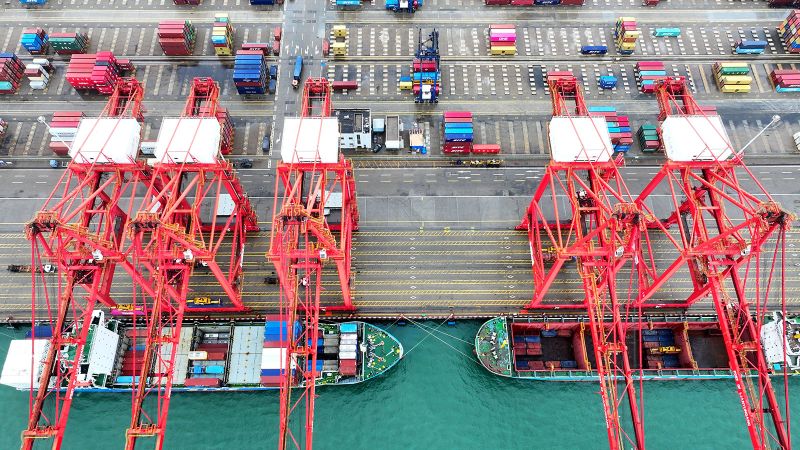On Friday morning, West Coast port officials informed CNN about an alarming situation: Not a single cargo vessel had departed from China carrying goods destined for the two major West Coast ports within the past 12 hours. This hasn’t occurred since the pandemic. Six days prior, 41 vessels were scheduled to leave China for the San Pedro Bay Complex, which includes both the Port of Los Angeles and the Port of Long Beach in California. However, on Friday, that number dropped to zero.
President Donald Trump’s trade war imposed significant tariffs on most Chinese imports last month, resulting in fewer ships at sea carrying less cargo to America’s ports. For numerous businesses, trading with China, one of America’s key trading partners, has become too costly. Officials are concerned not only about the absence of vessels leaving China but also about how rapidly the number has decreased.
“That’s cause for alarm,” stated Mario Cordero, the CEO of the Port of Long Beach. “We are now witnessing numbers exceeding what we observed during the pandemic” regarding cancellations and fewer vessel arrivals. The busiest ports in the country are experiencing sharp declines in cargo. The Port of Long Beach is seeing a 35-40% drop compared to normal cargo volume. The Port of Los Angeles reported a 31% drop in volume this week, and the Port of New York and New Jersey anticipates a slowdown. On Wednesday, the Port of Seattle announced it had no container ships in the port, another anomaly not seen since the pandemic.
US and Chinese trade representatives are set to meet in Geneva over the weekend for their first face-to-face meeting to attempt to de-escalate the trade war. Most goods shipped from China to the US face a 145% tariff, while most US exports to China are hit with a 125% tariff. On Friday, President Donald Trump suggested reducing the tariff rate with China to 80%, but stated the final terms would be decided by Treasury Secretary Scott Bessent.
For consumers facing higher prices or shortages of certain items, Cordero emphasized the urgency for a deal. “If things don’t change quickly, we may see empty shelves in stores within the next 30 days,” said Cordero.
— new from CNN
